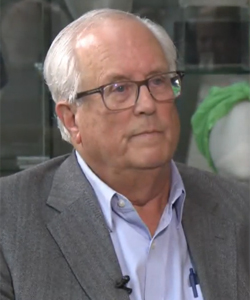In a region already grappling with a severe affordability crisis, Metro Vancouver’s political salary structures have come under intense scrutiny as several municipalities pay their elected officials significantly more than others with similar populations. The disparities have ignited calls for standardized compensation frameworks that critics argue are long overdue.
The current patchwork of municipal compensation schemes across Metro Vancouver reveals striking inconsistencies. Surrey, the region’s second-largest city with approximately 600,000 residents, pays its councillors roughly $85,000 annually. Meanwhile, in neighbouring New Westminster, with a population of just 80,000, councillors earn a comparable $84,000 per year.
“The fundamental problem is that we’ve allowed local governments to determine their own compensation,” explains Jordan Bateman, former BC Director of the Canadian Taxpayers Federation. “There’s no consistency, no accountability, and no real connection to the actual responsibilities or workloads involved.”
This self-governance of salaries has created what some observers call a “political compensation lottery” across the region. Vancouver, with its population of 675,000, pays councillors approximately $95,000, while Burnaby councillors receive around $72,000. The disparities become even more pronounced when examining smaller municipalities, where compensation often fails to correlate with population size or civic responsibilities.
Hamish Telford, a political science professor at the University of the Fraser Valley, points to British Columbia’s lack of provincial oversight as a contributing factor. “Unlike some other provinces, B.C. has no standardized formula for determining appropriate compensation levels for municipal politicians,” Telford notes. “This has created a situation where each municipality operates in isolation, leading to these significant inconsistencies.”
The debate intensified earlier this year when several Metro Vancouver municipalities, including New Westminster and Port Coquitlam, approved substantial pay increases for their elected officials. In Port Coquitlam, councillors saw their compensation rise by approximately 15 percent, a move Mayor Brad West defended as necessary to attract qualified candidates.
“If we want diverse representation and people who can fully commit to serving their communities, the compensation needs to reflect that,” West stated during council deliberations. “Many councillors are essentially working full-time hours for part-time pay.”
However, critics counter that municipalities should not be making these decisions independently. Kris Sims, current BC Director of the Canadian Taxpayers Federation, advocates for provincial intervention.
“We need the provincial government to step in and create a standardized framework that ties compensation to measurable factors like population, budget size, and scope of responsibilities,” Sims argues. “When politicians set their own salaries without clear guidelines, it undermines public trust.”
Some municipalities have attempted to address these concerns by establishing independent compensation review committees. West Vancouver, for example, convenes a citizen panel every four years to evaluate and recommend appropriate salary levels for its mayor and council. This approach, while more transparent, still results in significant regional variations.
Municipal compensation expert David Siegel from Brock University suggests that British Columbia should follow Ontario’s lead, where the Association of Municipalities of Ontario has developed compensation guidelines that many communities adopt.
“Having regional standards doesn’t mean one-size-fits-all,” Siegel explains. “But it does create a transparent, evidence-based framework that taxpayers can understand and municipalities can justify.”
As Metro Vancouver continues to face pressing challenges from housing affordability to infrastructure needs, the question of fair and consistent political compensation remains unresolved. With municipal elections scheduled for 2026, voters may increasingly demand greater standardization and transparency in how their elected officials are paid.
As residents across the region struggle with rising costs of living, can Metro Vancouver municipalities justify their disparate approaches to political compensation, or has the time finally come for provincial intervention and standardized salary frameworks?










